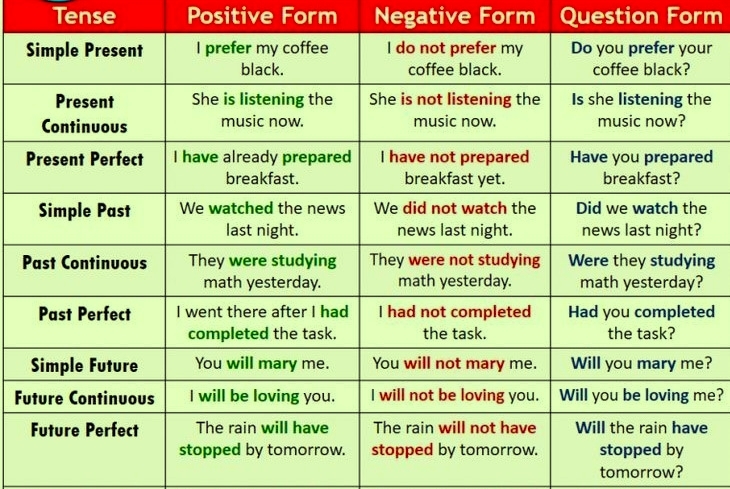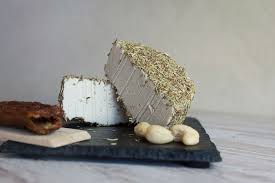➣ The past continuous describes an action that was happening when another action interrupts
Last month a student from China joined our class. She came in, introduced herself, and began to talk about her country. She showed us where she was from on a map. While she was talking about her home town, the school bell suddenly rang.
| I was writing | I was not writing | Was I writing? |
| You were skiing | You were not skiing | Were you skiing? |
| He was reading | He wasn’t reading | Was he reading? |
| We were trying | We weren’t trying | Were we trying? |
| They were dying | They weren’t dying | Were they dying? |
➣ Actions that were in progress at a particular time in the past and descriptions of habits
- At midnight, we were still driving .
- Yesterday at this time, I was sitting at my desk at work.
- He was constantly talking. He annoyed everyone.
- I didn’t like them because they were always complaining.
➣ Parallel actions to describe the atmosphere at a particular time in the past
When I walked into the office, several people were busily typing, some were talking on the phones, the boss was yelling directions, and customers were waiting to be helped. One customer was shouting at a secretary and waving his hands. Others were complaining to each other about the bad service.
Friday the 13th. Everything went wrong for Larry. Look at his misfortunes
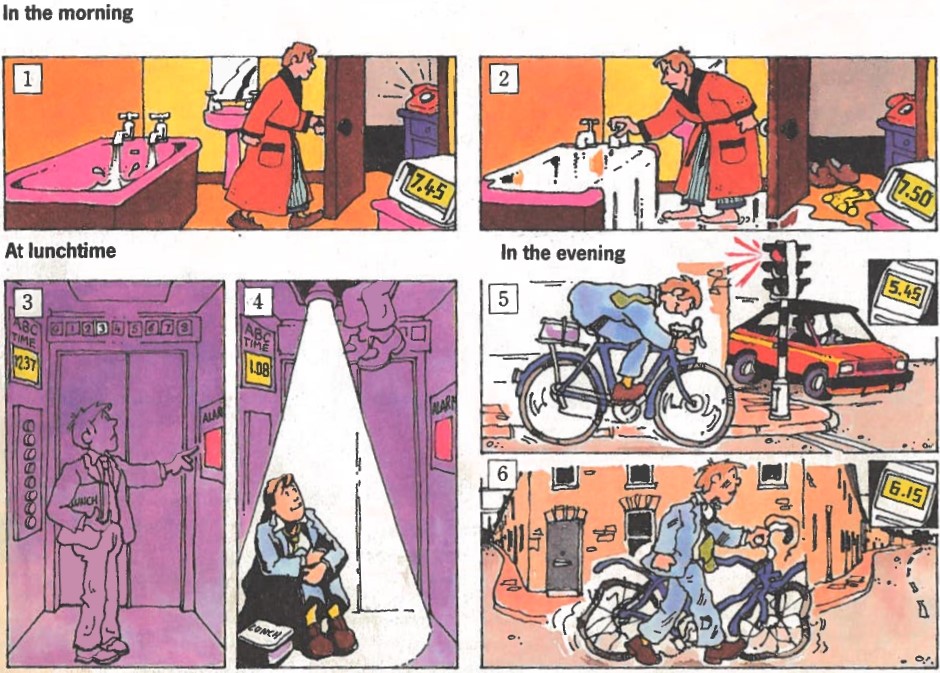
HERE ARE THE TEXTS FOR THE PICTURES ABOVE, BUT THEY ARE IN THE WRONG ORDER
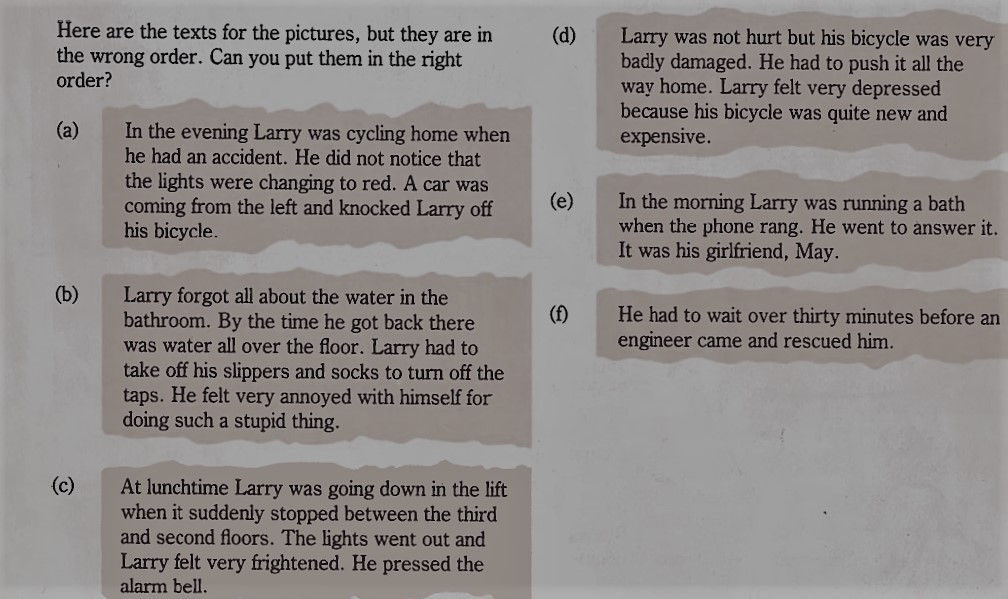
answers: e , b , c , f , a , d
Here there are some questions about the pictures. Try to answer them without looking at the texts
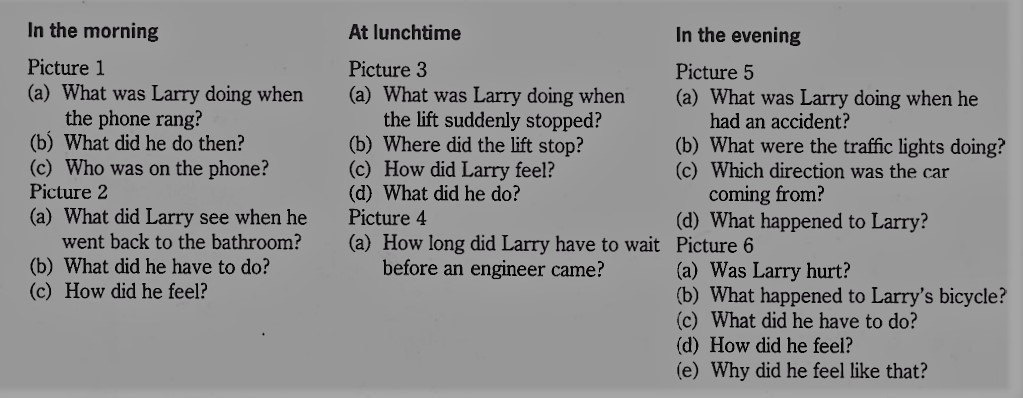
More and more things went wrong for Larry. Join the sentences according to the pictures
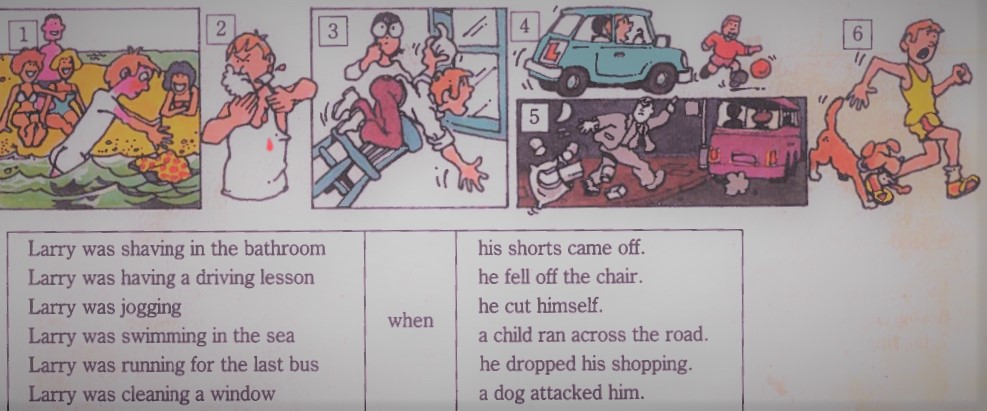
Write a short narration for each event. For example:
On Sunday Larry was swimming in the sea when his shorts came off in the water. He felt very embarrased because there were a lot of people on the beach. He had to wait inside the water until everyone left.
reference: New Generation Colin Granger Heinemann
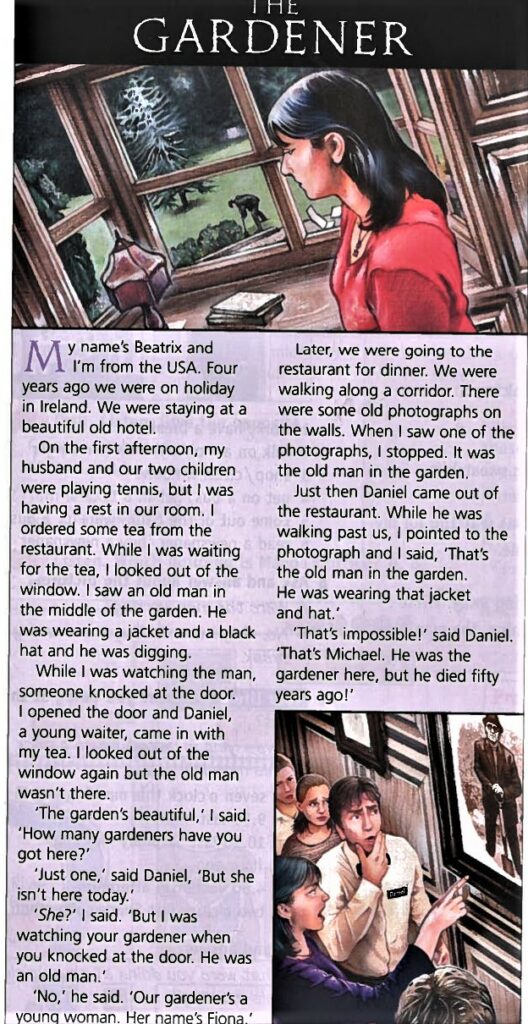
reference: English for Life Pre-Intermediate Oxford



